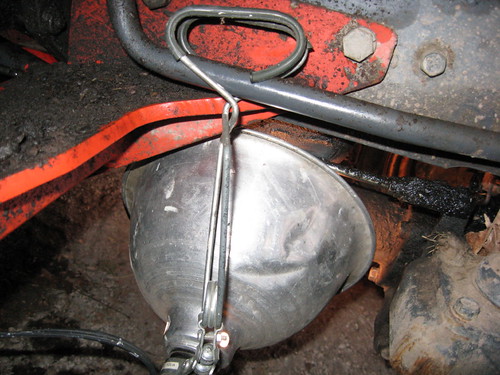Check with your local ford dealer they can probably get you a block heater. Turn it on a hour before use and you start right up.
:agree2:
That's exactly what I do and my tractor is a lot happier for it!

Check with your local ford dealer they can probably get you a block heater. Turn it on a hour before use and you start right up.
I blew the head gasket on my loader two years ago starting with either.
Billy

MY 5400 Deere starts and runs easier than any of my gas engines ,cars included in cold weather. In 0 degree temps with no heat and setting all night it will fire up instantly. I let it set awhile at 1000rpm before I work er though. Incredible for a diesel I know. I heard other complain about this model in cold weather so I must be lucky with a good one. I do however run it exclusively on jet fuel. Don't know if that helps or not but that fuel doesn't gel.
I spike all the fuel with 2 cycle oil to lube the pump. I've had others say the same. Been running it that way for 3yrs now. I know others that have been doing it many years in all sorts of equipment without nary a problem yet. I have a friend who drove to work about 19yrs in a VW rabbit diesel w/jet fuel the whole time. I'll let you know in 20yrs how well it worked.
When adding 200* antifreeze from a running vehicle to one thats 0* or colder, wouldn't there be a risk of cracking something due to fast temperature change?
When adding 200* antifreeze from a running vehicle to one thats 0* or colder, wouldn't there be a risk of cracking something due to fast temperature change?
That clip on light is a good idea too, the radiant heat power of spot lights or halogen work lights can work wonders.
I recall stories of guys using coals or candles when away from electricity sources.
I spike all the fuel with 2 cycle oil to lube the pump. I've had others say the same. Been running it that way for 3yrs now. I know others that have been doing it many years in all sorts of equipment without nary a problem yet. I have a friend who drove to work about 19yrs in a VW rabbit diesel w/jet fuel the whole time. I'll let you know in 20yrs how well it worked.
Enter your email address to join: